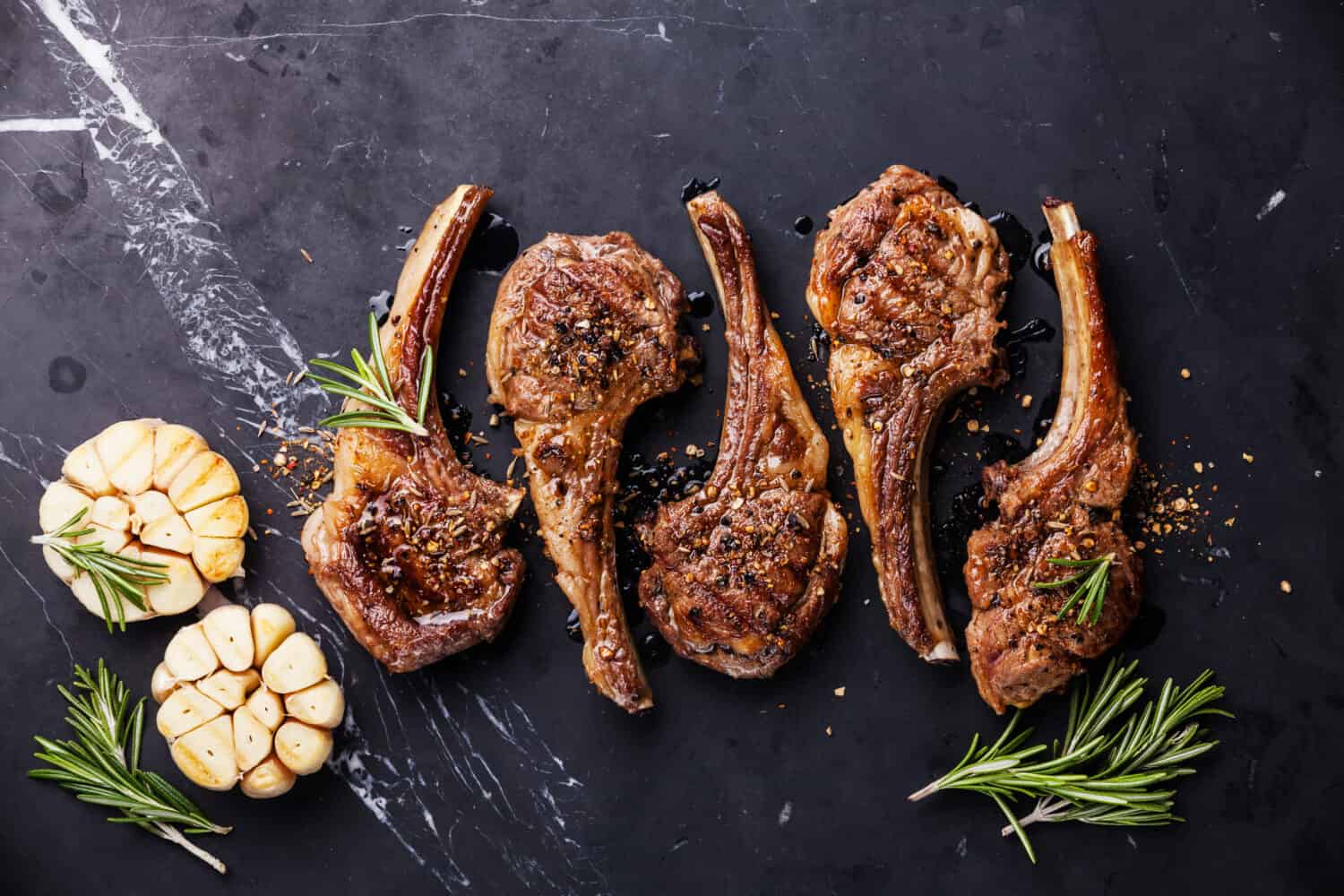Though it tends to make fewer appearances on American restaurant menus than other proteins such as chicken, steak, or pork, lamb is a frequently sought-after source of protein worldwide. Countries such as Australia, Turkey, Greece, New Zealand, and Kazakhstan frequently employ lamb as a staple protein in everything from gyros to traditional stews and kebabs. Its rich flavor can add just the right amount of pizzazz to a dish. But is lamb healthy? As with most other protein sources, lamb is only as nutritious as the ingredients it’s served with. But on its own, lamb is a nutrient-rich source of iron, zinc, B12, and various other essential vitamins and minerals. We're digging into scientific research and studies to pinpoint some of the advantages and disadvantages of lamb.
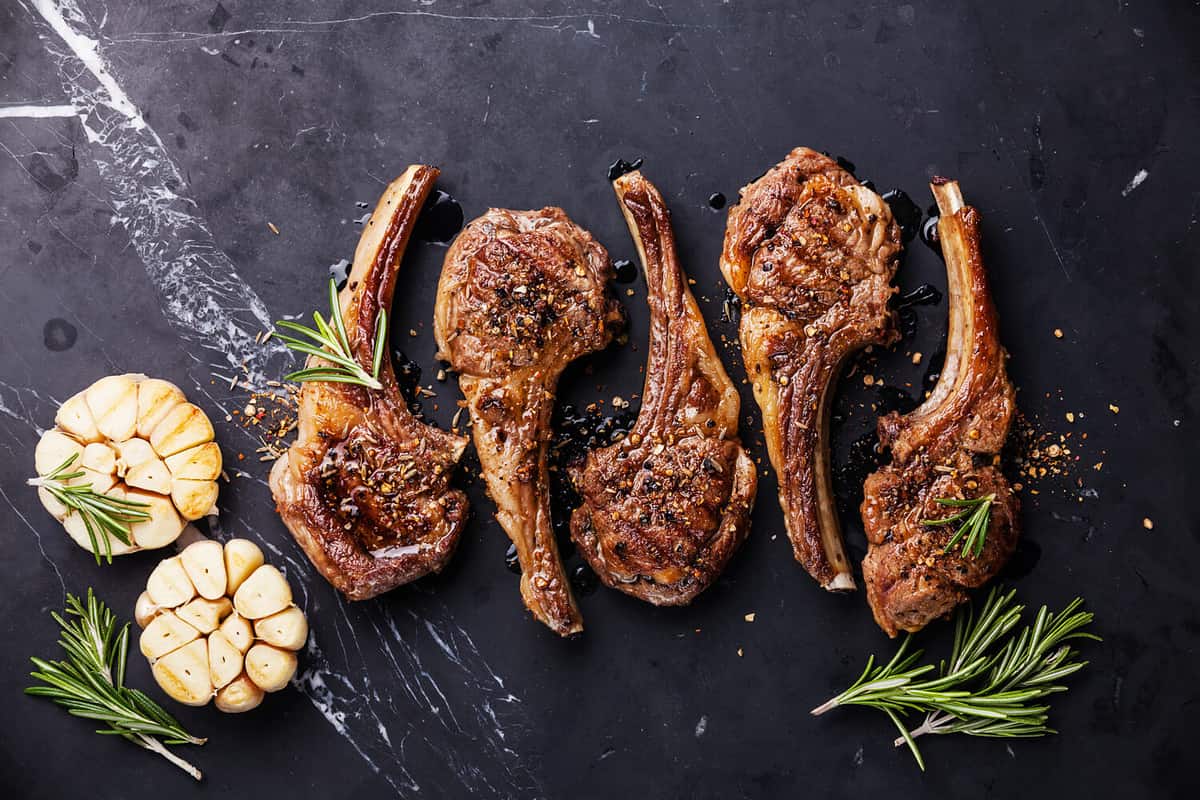
©Natalia Lisovskaya/Shutterstock.com
What is Lamb, and Where Does it Come From?
Lamb sometimes suffers from a poor reputation in the culinary world, courtesy of its origins. Specifically, lamb is the red meat from an immature sheep, so many people won’t consume it due to their personal ethical boundaries. Nevertheless, there are plenty of people willing and delighted to partake, and quite a few cultures that commonly include lamb in main dishes.
From a flavor profile standpoint, lamb offers a gamier taste than many of its other protein counterparts, such as chicken or steak. But despite its stronger flavor, it’s also highly versatile. It can be slow-braised for stews, grilled to perfection and served with a side of mashed potatoes, or seared rare with a delicate mint jelly topping. Regardless of its preparation, one thing is certain: it’s delicious!
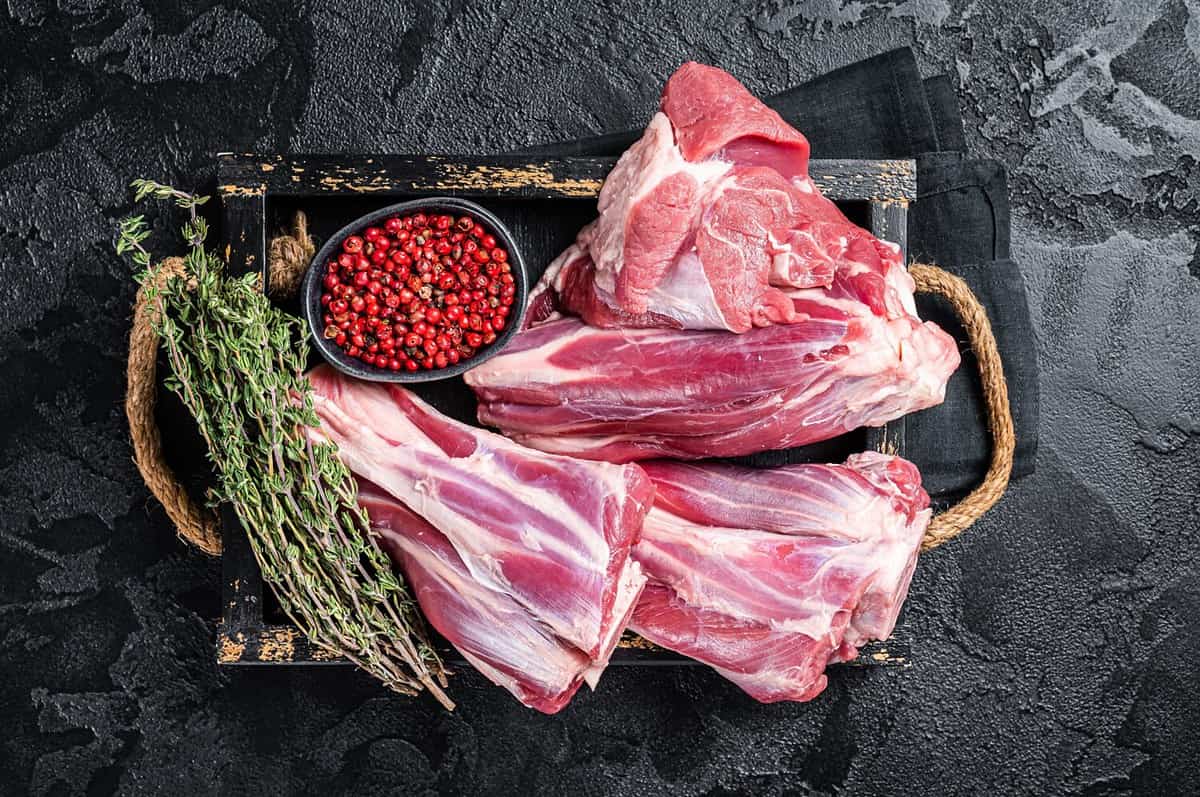
©Mironov Vladimir/Shutterstock.com
What are the Health Advantages and Disadvantages of Lamb?
Lamb is a protein-rich meat, and it’s chock-full of nutrients, to boot. It offers potassium, vitamin B-12, iron, magnesium, selenium, and omega-3 fatty acids. With that in mind, regular consumption of lamb can encourage muscle growth and prevent anemia. If you have concerns with your cholesterol levels, lamb is thought to be safe in moderation. That is, as long as you choose the right cut and prepare it in a healthy way. Some of the leanest options include the shank, loin, and leg, and culinary preparations such as roasting, broiling, and grilling can reduce fat levels relative to other preparations such as pan-frying.
How an animal is raised can also contribute to how lean a cut of meat is or is not. Most lambs are given a diet of grains to increase fat levels. However, their natural diet is grass, which can improve the meat's nutritional quality. Grass-fed cattle and lambs tend to have higher amounts of heart-healthy omega-3 fatty acids.
Though lamb is higher in fat than proteins such as chicken, it remains a fairly lean meat. Additionally, lamb often has less marbling than beef (the fat streaks in red meat). Trimming the fat from the edges after cooking can help create a leaner cut of meat. With that said, studies show that higher consumption of red meats — in general — can increase the risk of certain cancers, such as colorectal, as well as heighten the risk of heart disease. It is also a source of saturated fat. Cooked lamb has roughly the same amount of monounsaturated fat and saturated fat. While monosaturated fatty acids can lower your cholesterol, saturated fatty acids can have the opposite effect.
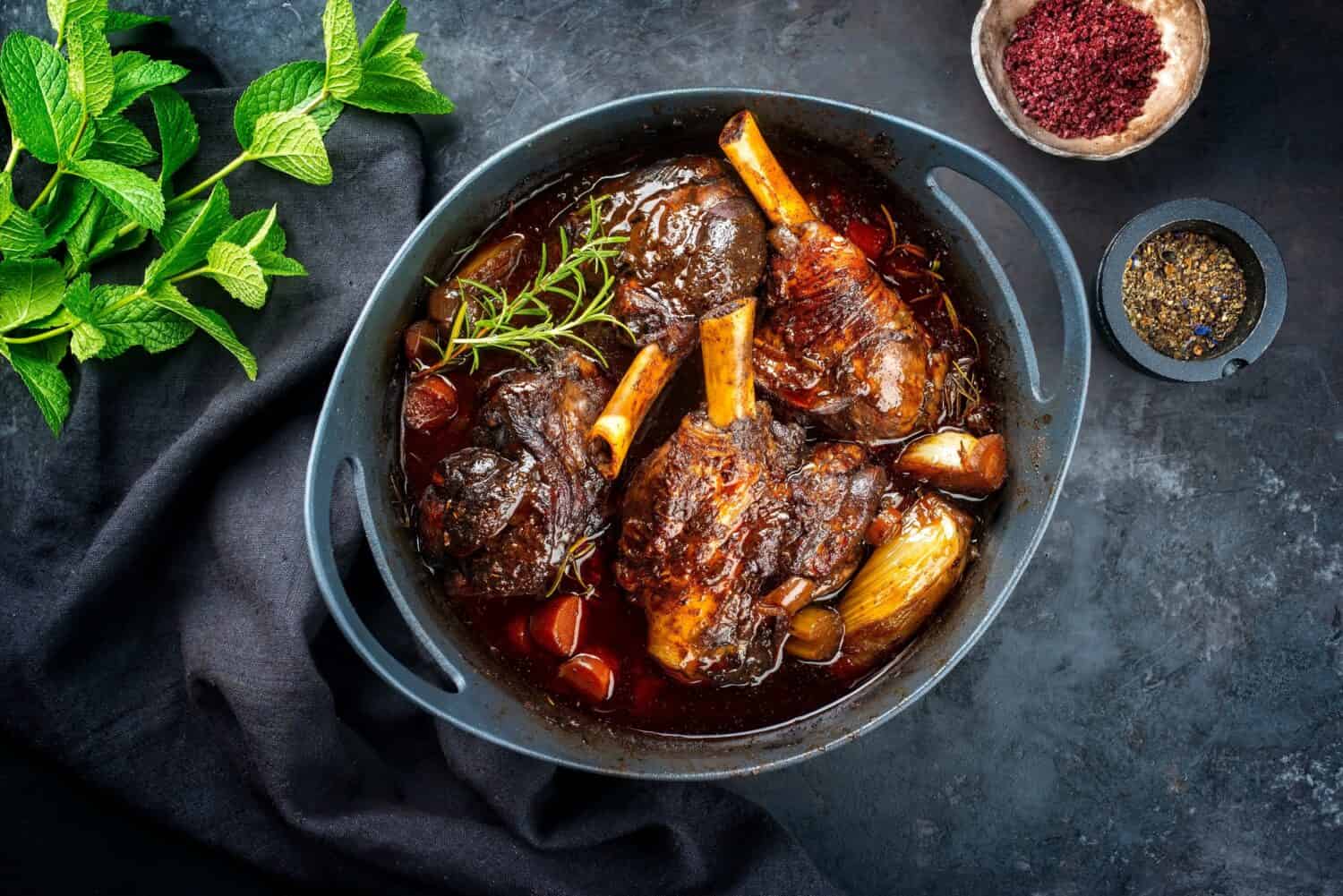
©hlphoto/Shutterstock.com
Important Takeaways:
- Lamb is a staple protein of many international diets.
- On its own, lamb is a nutrient- and protein-rich source of iron, zinc, B12, and various other essential vitamins and minerals.
- Most lambs are grain-fed to increase fat levels. However, their natural diet is grass, which can improve the meat's nutritional quality.
- Some observational studies link a higher intake of red meat to an increased risk of both cancer and heart disease.
- If you're looking to up your nutritional levels, certain lamb cuts are leaner than others. These include cuts such as the shank, loin, and leg.
- Regular consumption of lamb can encourage muscle growth and prevent anemia.
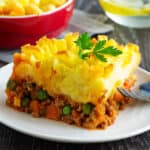
Shepherd's Pie with Lamb
Ingredients
Caramelized Onions:
- 2 tablespoons extra virgin olive oil
- 2 teaspoons butter
- 2 1/2 cups chopped onion
- 1 teaspoon salt
- 1/2 cup water
Filling:
- 2 tablespoons extra virgin olive oil
- 2 lbs. lean ground beef or lamb
- 1 small package frozen peas and carrots
- 1/2 teaspoon dried thyme
- 1 teaspoon coarsely ground black pepper
- 1 teaspoon chopped fresh parsley
- 3/4 cup beef broth, or as needed
- 1 tablespoon flour, or as needed
Potato Topping:
- 6 large potatoes, cooked and mashed
Instructions
- To make the caramelized onions, heat olive oil and butter in a large frying pan over medium heat.
- Add onion and salt and cook, stirring with a wooden spoon, until translucent, about 5 to 7 minutes.
- Reduce heat to low, add water, cover, and cook another 5 minutes, occasionally checking to be sure onions are not catching on the bottom of the pan.
- Remove the cover, turn the heat to medium, and stir with a wooden spoon. Continue cooking until water is completely evaporated and the onion is golden brown. Remove to a bowl and set aside.
- Set the oven rack to the middle position. Preheat the oven to 400 degrees F. Coat a 9-inch by 13-inch ovenproof glass baking dish with vegetable spray.
- To make the filling, add olive oil to the frying pan and heat over medium heat. Add ground beef or lamb and cook until no longer pink. Drain excess fat. Add caramelized onions, thyme, pepper, parsley, and beef stock. Stir with a wooden spoon to combine.
- Add frozen peas and carrots and mix well.
- Add flour, reduce heat to low, and cook, stirring, until flour is absorbed and mixture thickens, approximately 3 to 5 minutes. Adjust the consistency of gravy to your taste, adding more stock or flour as needed. Scrape mixture into prepared dish.
- Spread the mashed potatoes over top of the pie until it is completely covered.
- Bake for 25 minutes or until potatoes are golden brown. Cover with foil if potatoes brown too quickly.
- Serve immediately. Cover leftover shepherd’s pie with plastic wrap and store in the refrigerator.
The image featured at the top of this post is ©Natalia Lisovskaya/Shutterstock.com.
